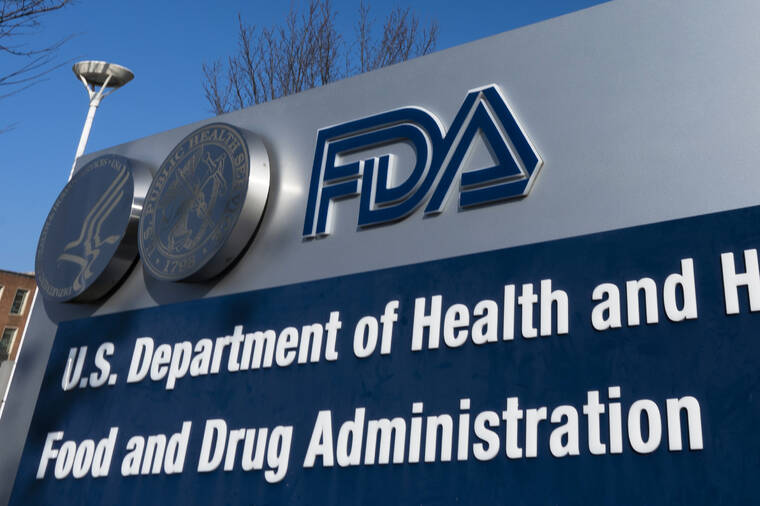Eyedrops from CVS, Rite Aid, others carry possible infection risk

ASSOCIATED PRESS
A sign for the U.S. Food and Drug Administration is displayed outside their offices in Silver Spring, Md., in December 2020. U.S. health regulators are warning consumers not to use more than two dozen varieties of over-the-counter eyedrops because of the risk of infections that could lead to blindness.
WASHINGTON >> U.S. health regulators are warning consumers not to use more than two dozen varieties of over-the-counter eyedrops because of the risk of infections that could lead to blindness.
The Food and Drug Administration advisory applies to lubricating drops sold by six companies, including CVS Health, Target, Rite Aid and Cardinal Health. Consumers should stop using the products immediately and avoid purchasing any that remain on pharmacy and store shelves, the FDA said in a statement Friday.
The agency asked the companies to recall their products last week, because FDA inspectors found unsanitary conditions and bacteria at the facility producing the drops. The FDA did not disclose the location of the factory or when it was inspected.
No injuries related to the products had been reported at the time of the announcement, but the FDA encouraged doctors and patients to submit cases through the agency’s online reporting system.
Earlier this year, federal officials linked an outbreak of drug-resistant bacteria to eyedrops from two companies, EzriCare and Delsam Pharma. More than 80 people in the U.S. tested positive for eye infections from the rare bacterial strain, according to the most recent update from the Centers for Disease Control and Prevention.
After the products were recalled in February, health inspectors visited the manufacturing plant in India that made the eyedrops and uncovered problems with how they were made and tested, including inadequate sterility measures.
Don't miss out on what's happening!
Stay in touch with breaking news, as it happens, conveniently in your email inbox. It's FREE!




